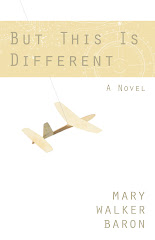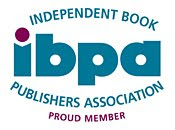I love libraries. Throughout my life I have supported my
local public library with my tax dollars, with my contributions, and
with payment of my frequent past due charges. Libraries are places of
solitude and comfort and inspiration and magic. Our society needs its
public libraries.
I could barely read when I got my first library card. I still have that
card and imagine going back to that little Arizona public library and
using it to check out a book. Chances are it expired decades ago. My
first foray into that library was the small room for children. There
couldn't have been more than two hundred books on those shelves. I
studied medicine with Sue Barton. I solved mysteries with Nancy Drew. I
experienced wonderful adventures with The Bobbsey Twins. That small
room also introduced me to Charles Dickens and Lewis Carroll and Mark
Twain. Then the day came when I couldn't find a book on those shelves
that I hadn't already read. I despaired of ever reading again until I
looked out the door of that little room and saw the rest of the library.
I was stunned and gradually absorbed the realization that in my
lifetime I could never read every book ever written.
That moment of insight became part of my life's narrative. I really
won't read every book ever written and that's okay. Nor, I now realize,
do I want to read every book ever written. Beyond that, though, I
won't even get to read every book I want to read. That's okay, too.
And yet this obvious limitation has never stopped me from reading. Thus
the first library metaphor might be to never give up on our life goals
just because indications are we won't achieve them.
There's another even more compelling metaphor I learned from the
library. We have to return the books by a certain date. Sure, we can
renew the books but ultimately we have to give them back.
There were no bookstores in the small town of my youth. The first book I
saw for sale was inexplicably propped up in the window of the drug
store. Curious, I asked about the book and when I found out I could buy
it immediately began saving my weekly allowance. I visited the window
regularly and on occasion was allowed to hold the book. I worried that
someone would buy the book before I had saved enough. It was an anxious
time especially since there did not appear to be any other books for
sale in the entire town. It took months to manage the price of the book
but at last I became the proud owner of Angel Unaware by Dale Evans
Rogers. Looking back on that purchase, I have no idea why the book
appealed to me. Perhaps it was because I had never heard of a blue baby
or maybe I just wanted it because it was there. I suspect it was in
the window to begin with because the owner of the drug store read it and
had no further use for it or received it as a gift and couldn't wait to
get rid of it.
Since that original purchase the size of my library has ebbed and flowed
depending on my income or the size of my home or on my willingness to
stack, store, box, sell or donate. I have lost books and missed them
desperately. I have loaned books never to get them back. I have
borrowed books never to return them. I say I won't buy any more books
and then, of course, I buy a few more books.
My library contains books trashed with my own notations and drawings and
doodles, books treasured with the notations and drawings and doodles of
people dear to me, books I inherited, books I bought, books considered
classics, books read for fun, books read for study and many, many books
not yet read.
With all of those books surrounding me and especially with all of those
yet to be read books waiting on my shelves, I still frequently visit my
local public library. Mind you, I don't just visit that library. I go
there and I check out books which I bring home and read and really try
to get them back to the library before their due date so I can check out
more and repeat the cycle all the while aware of the unread books in my
own library.
That moment back in the library of my youth when I realized I would
never read all of the world's books also marked my beginning awareness
of the limitations of mortality. I couldn't keep the library books
forever. They had a due date. The yet to be read books patiently
waiting on the shelves of my personal library don't appear to have a due
date by which they must be read and returned. I'm a more efficient
reader when I check books out of the library. I know I have to finish
them by a certain date so I read with pleasurable intention.
Of course by embracing this logic I begin to see that while my own
unread books have no due date, I do. I can only live my life until a
certain date and as far as I know I won't be able to request a renewal.
Unlike my library books, though, I don't know my due date. That
complete lack of information makes it all too easy to pretend there is
none.
Just as I read library books with greater focus because of the due date,
I know that I do most other life chores most effectively and
efficiently when they have a deadline. A dead line.
Using the public library as a metaphor for how I want to live my life,
I'm going to try to be more aware of my own deadline even if the date
remains unknown. Just as I read library books with more focus and
intention because of their due date, I will try to live my life with
similar focus and intention because I, too have a due date. Perhaps
I'll start by reading some of the books in my own library.



